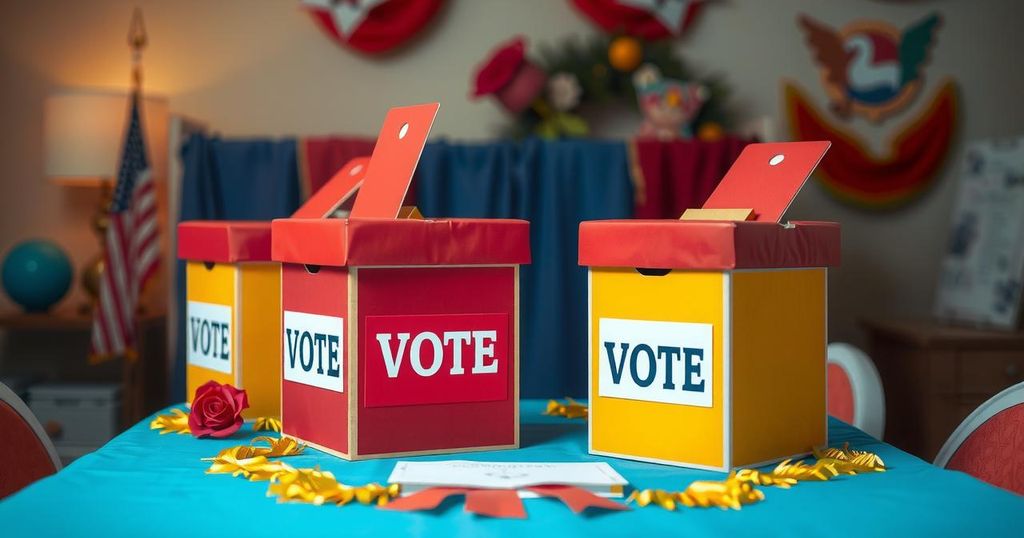The election for the next president of the International Olympic Committee is approaching its decisive phase, with no clear frontrunner among the candidates. As IOC members prepare to vote, the election is marked by uncertainty and intense competition. Important issues for the future of the Olympic Movement, such as gender equity and sustainability, remain paramount for the incoming president.
The International Olympic Committee (IOC) is in the concluding stage of the presidential election, with no candidate showing a definitive lead. Members are poised to cast their votes during the 144th Session, which is the last under the current president, Thomas Bach. As discussions unfold among IOC members, the outcome remains unpredictable, marking this election as one of the most uncertain in recent history.
Li Lingwei, an IOC Executive Board member from China, noted the intensity surrounding the election, stating, “This is an intense election, and everyone is carefully evaluating their choices. Each candidate has their own strength.” David Lappartient, one of the candidates and the president of the International Cycling Union, anticipates a protracted election process, expressing, “I think it’s moving fast, but I’m still in the race,” indicating that several rounds of voting may be required to reach a consensus.
Juan Antonio Samaranch Jr. emphasized the secrecy surrounding the ballot process. He cautioned against misinterpretations of camaraderie as indicative of votes, declaring, “It’s very easy to mistake a smile for a vote.” He affirmed his commitment to campaigning until the very last moment of the election.
With over 100 votes to be cast following a secret ballot system, if a candidate does not achieve a majority in the initial round, the candidate with the lowest votes will be eliminated, necessitating further rounds of voting. Another prominent candidate, Sebastian Coe, maintained silence with media, stating simply, “I’m still here” as he prepared for the final voting day.
Kirsty Coventry, the sole female candidate and a significant figure due to her African heritage, has been speculated to be favored by Bach. Prince Feisal bin Hussein, another candidate, expressed confidence in his chances: “I’m in it to win it,” while stressing that the final decision rests with the members. Other candidates Johan Eliasch and Morinari Watanabe chose not to elaborate on their positions, with Watanabe waiting for the votes to unfold.
The future president faces myriad challenges, including maintaining political neutrality and advancing gender equity in the Olympic framework. Martin Fourcade from France pointed out that the new leader must exemplify strong leadership and vision: “The new president must not only have leadership skills but also be able to balance different interests while promoting fairness and sustainability in the Olympic Games.”
As the election approaches, candidates are actively seeking to sway undecided voters, with ongoing discussions behind closed doors. The outcome, whichever it may be, promises to be a defining moment in the history of the Olympic movement, according to Li Lingwei: “No matter who wins, this election will be a historic milestone for the Olympic movement.”
The IOC presidential election is characterized by intense competition and uncertainty, with candidates making final appeals to secure their positions. Notable figures like David Lappartient and Juan Antonio Samaranch Jr. emphasize the unpredictability of the voting process as members prepare to cast their ballots. In addition to selecting a new leader, issues such as gender equity, sustainability, and political neutrality remain at the forefront of the Olympic agenda, demonstrating the substantial responsibilities that the new president will undertake.
Original Source: english.news.cn






